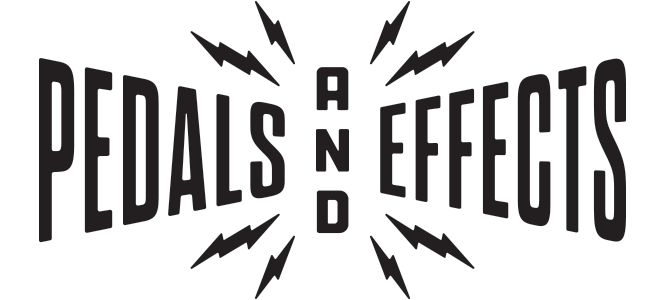Throwback Thursday: The Chronic – Gangster Bass Lines from some highly influential Hip-Hop Albums.
/Before Pedals And Effects existed, I would write about crazy bass lines via my column in the now defunct Bass Guitar Magazine. My editor, James Rotondi, was always so cool to let me do a column for him on gangster bass lines from the hip hop records I loved.
I took some of my favorite bass lines on rap records and wrote this column that appeared in a 2004 issue of Bass Guitar Magazine. I wrote about one of my favorite albums, The Chronic, as well as the Doctor Octagon record I helped out on back in the 90’s well before my stint with Dan The Automator’s Deltron 3030 band.
With all the hype of Straight Outta Compton, I thought it would be cool to share this article from a bassist who was down from day one. You can hear all this influence, to this day, in my playing. Just check out this bass line I came up with for Jon Wayne’s Green Light with Straight Outta Compton’s soundtrack’s Anderson Paak.
(With the exception of the images, the following text appeared in a 2004 issue of Bass Guitar Magazine):
The Chronic: A look at some gangster bass lines from some highly influential hip-hop albums.
From my mid-80s shred years with Racer X, and the more obscure bands I was in during the 90’s, to my present gig with the Mars Volta, my career has never been traditional, nor has my approach to playing bass. In fact, I really didn’t think a musician’s magazine would allow a column called Down with The Chronic, but thanks to the crew at Bass Guitar Magazine, you can bear witness to my angle on the bass.
When I first heard hip hop back in the early Eighties, I felt drawn to it and wanted to incorporate it into my playing. I knew this music was going to have a big impact on popular music, but back then, I don’t think I could have fully realized what a huge influence it was going to have on my bass playing. More than any other influence since Jaco Pastorius, the bass lines I heard on early hip hop records impacted the way I played and thought about the bass. I bought as many hip hop records as I could afford, from the days of the early East Coast pioneers to the West Coast explosion, but in 1992-93, there was one record I just couldn’t get enough of, and that was Dr. Dre’s, The Chronic.
Whether it’s a Parliament-Funkadelic-influenced synth bass line, a Seventies soul bass riff, or an upright (acoustic) sample, all the bass lines on this record are very funky. I used to play along to this album from beginning to end. To me, each bass line epitomized the role of the bass in a rhythm section, displaying how the instrument works together with the drums to make the track groove. The drum loops themselves are funky, but when the bass is laid on top, the motion of the song really takes off.
A prime example of this approach can be found in “A Nigga Witta Gun,” a song that’s propelled by a one-bar “gangsta” bass line (played on an upright) that’s looped throughout most of the track and serves as its musical foundation. One of the coolest things about this line is the way it implies harmony while also being rhythmically and melodically catchy. Played in steady eighth notes (fingerstyle), the line is comprised of ascending arpeggios that outline a rather dark- and sinister-sounding C5-Eb5-Gb5 progression and suggest a minor tonality. The flat-five interval, between the notes C and Gb, lends an inherently evil vibe to the line. This interval is a trademark of gangsta hip hop bass lines. Notice also how the use of finger slides gives the line a sinewy, “greasy” feel.
You can really appreciate how much the bass drives the song’s groove when Dre momentarily mutes the bass at 3:00, creating a feeling of “suspension.” When he drops it back in on the downbeat of the following measure, the track starts bumping again. (This is something Dre does often as a producer.)
This same bass line, incidentally, can also be heard in the Beastie Boys‘ “Pass the Mic,” on their record Check Your Head. The majority of that track is based around a lone drum loop, but producer Mario Caldato Jr drops this bass line in at 1:14, and when he does this, you can really feel the ascending line push the track along.
Another example of an evil-sounding gangsta bass line from The Chronic can be found in “The Day the Niggaz Took Over.” Again, you have an ascending bass line pushing the track along, this one consisting of four simple quarter notes. The line begins and ends on A, establishing an A tonal center, but notice how it moves to the flat-five interval, Eb, then down a half step to D, before resolving up a fifth to A, instantly creating an eerie vibe. To me, this line sounds like a merge of funk and punk, since so much punk music uses the flat-five interval. I feel this is why I was so influenced by this album. The Seventies funk and punk rock elements encompassed in this record made it my favorite CD of the Nineties.
After releasing The Chronic, Dr. Dre continued to create tracks with big, phat bass lines, and I, of course, continued to study everything he produced. From the NWA records to cuts like Snoop Dogg’s “The Shiznit” (Doggy Style), I learned all of it. FIGURE 3 shows the one-bar bass line that’s repeated throughout most of “The Shiznit” and helps give the track its catchy, ill sound. I really felt the bounce of the bass line on this particular cut. The 16th-note pickup at the beginning of the line pops the drum loop into effect. The drumbeat is rather basic, but it’s the bass and bass drum that make it really funky, with the subtle 16th-note syncopation at the end of the bar. Like the previous example, notice the use of half-step (chromatic) movement in this line, from F to Gb in this case, as well as the flat-five interval (Gb-C).
After learning a lot of hip-hop bass lines, I really wanted to record with or play in a band that backed up a hip-hop artist. This aspiration led me to working with hip-hop producer Dan the Automator. The Automator was the first producer I met who was working on digital recording. He had the first version of ProTools (SoundTools), and I would go to his parents’ house and record in his basement studio. I would play 10 or more different bass lines, and he would edit the ones he liked and lace them with drum loops. It changed the way I thought of the bass and how important its role is to this music’s foundation. We’ll discuss more of that experience (Doctor Octagon) in my next column.
I’ll always be in awe of the players that get sampled in hip-hop. I’m hoping the day comes when one of my basslines gets sampled and ends up on a record. Until then, it’s back in the studio to write, rehearse and record.
-Juan











